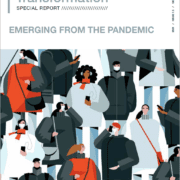What B2B Industry Leaders are saying about Trust
Customer Attuned recently brought together a group of senior leaders from a number of sectors to debate and discuss the issue of trust – a subject of which it is difficult to turn on the radio/TV; pick up a paper; or surf the web/social media without it jumping out.
Much is spoken, yet little is known precisely about what is meant by ‘trust’ within a customer attuned context.
The following summarises what these C level executives think about trust within business to business (B2B) relationships. We haven’t placed any particular order or prioritisation on their comments.
Fragility
Trust is seen as quite a fragile thing, taking years of hard work to develop yet one lapse or incident can burst it ‘like a balloon’. It is really difficult to regain a trusting position, often costing far more than the act of mistrust saved or gained in the first place. It is also the deed itself that can be interesting, if it’s an innocent and genuine mistake then customers are oft given to forgive and forget. However, if it’s seen as breaking that implicit code; making oneself vulnerable to another, for the benefit of both parties, then forgiveness is a long and penitent road. Under this heading also came the pursuit of short termism, often driven through quarterly targets. This has the potential to encourage behaviours that run counter to or may undermine the trust dynamic.
Value
The value of trust is often only enumerated when business is lost because of a breakdown, as can be witnessed within financial services at the moment. This appears to be value destructive and after the event, rather than part of a customer management dashboard measure as, for example, developed through Deep Insight http://www.deep-insight.com/. Evaluating the level of trust one has with a customer has real merits, as these customers are likely to be more loyal, open to innovation and propensity to consider additional products/services from your organisation.
Level
The level of trust within B2B was seen to operate through a number of elements; time, transparancy, internal vs external, individualistic, company and brand.
As time elapses within the relationship and experiences are shared; the trust level develops. We have also mapped this and correlated it as level 1 ~ calculus, level 2 ~ knowledge, and level 3 ~ identify based trust.
Transparency and openness within the relationship around what’s in it for both parties, can be seen on an internal basis when group headquarter or collective initiatives flow through to local level as ‘see thru’ benefits. Working with selected partners/customers around shared profit, investment and success outcomes ~ in essence trust based partnership development.
Distinction
Lastly the difference between B2C & B2B was highlighted, as within B2B both trust on a brand and individual level is vital as relationships are often complex, multi-level and may vary at differing levels, geographies and divisions. This means B2B organisations need to work at and plan their trust development not relying on the brand at the expense of the individual and vice a versa.
We host senior leadership discussion events on a regular basis; the above is a cross section of the debate and discussion that took place during the course of the evening.
If you would like to know more then please enquire here; www.customerattuned.com/contact-us/
- Excessive Trust – When Trust Goes Wrong - October 29, 2024
- Identification Based Trust - October 21, 2024
- Introducing Knowledge Based Trust - October 15, 2024

